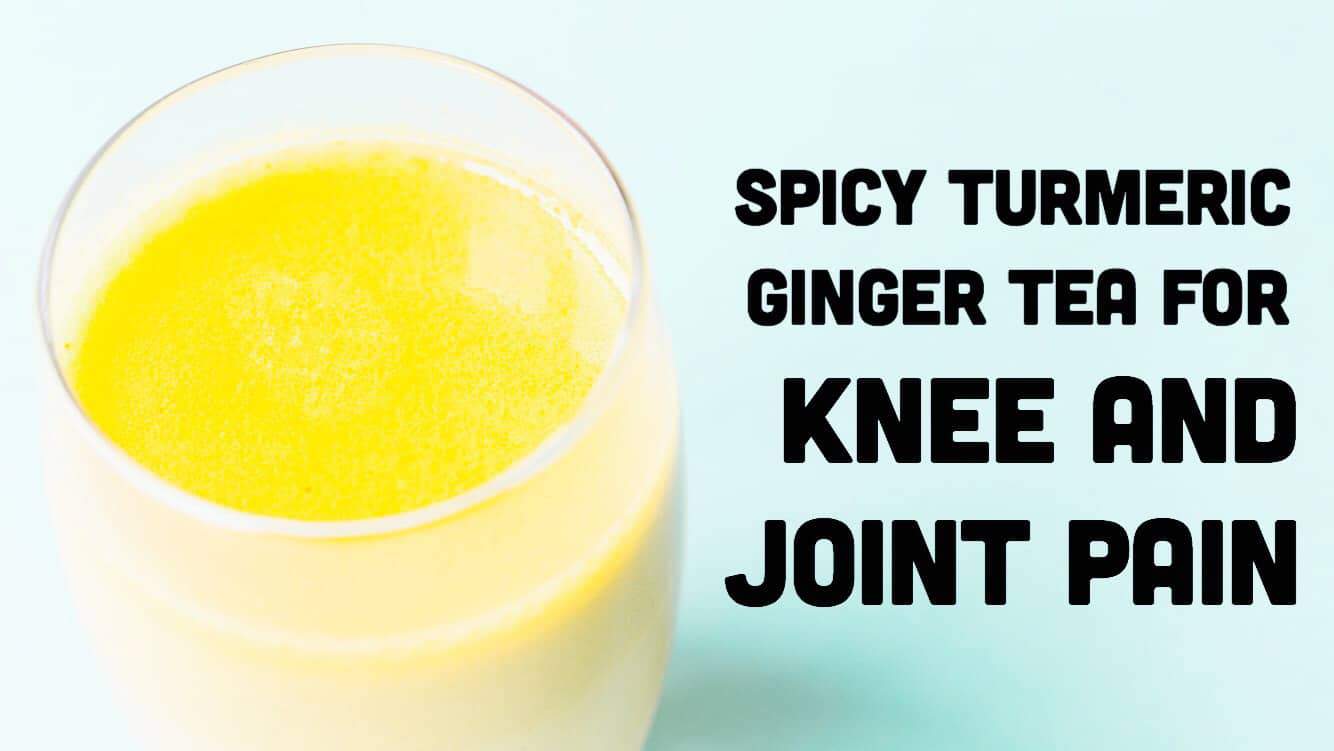
Turmeric Tea for Knee Pain: A Delicious Approach to Joint Health
Knee pain. For so many, it’s that nagging discomfort that seems to flare up right when you need your mobility most. You might have tried everything under the sun, yet relief feels just out of reach. But what if there was a natural, soothing remedy waiting for you in your kitchen?✨
Turmeric ginger tea is more than just a warming drink; it’s a powerhouse of anti-inflammatory benefits designed to bring your body the relief it craves. Loaded with healing compounds, this spicy tea taps into the ageless wisdom of natural remedies.
Let’s explore how this simple recipe can work wonders for your knee and joint pain—without the side effects of traditional medications.
Turmeric, a vibrant yellow-orange spice derived from the Curcuma longa plant, has been revered for centuries in traditional medicine for its potent anti-inflammatory and antioxidant properties.
Central to its therapeutic effects is curcumin, the primary active compound, which plays a significant role in alleviating knee pain, particularly in conditions like osteoarthritis.
Curcumin exerts its anti-inflammatory effects by modulating several key pathways in the body’s inflammatory response:
Numerous studies have explored curcumin’s efficacy in managing knee pain.
Curcumin is the principal curcuminoid in turmeric, responsible for its characteristic color and most of its therapeutic properties. Its effects include:
Incorporating turmeric into your diet, particularly in the form of turmeric ginger tea, can be a natural and effective strategy to manage knee pain and improve joint health.
However, it’s advisable to consult with a healthcare professional before starting any new supplement regimen, especially if you have underlying health conditions or are taking other medications.
Turmeric tea, often referred to as “golden milk,” is a soothing beverage renowned for its anti-inflammatory properties, making it a natural remedy for knee pain. Here’s how to prepare it:
For optimal benefits, it’s recommended to consume 1 to 2 cups of turmeric tea daily. Each cup should contain approximately 1 teaspoon of turmeric powder. It’s advisable to start with a lower intake to assess tolerance, especially if you’re new to turmeric.
Consult with a healthcare professional before incorporating turmeric tea into your routine, particularly if you have underlying health conditions or are taking medications.
Curcumin, the active compound in turmeric, has low bioavailability on its own. Adding a small amount of black pepper, which contains piperine, can enhance curcumin absorption by up to 2,000%. Therefore, including a pinch of black pepper in your turmeric tea is essential to maximize its anti-inflammatory effects.
By incorporating this turmeric tea into your daily routine, you may experience a natural reduction in knee pain and inflammation. Remember to maintain a balanced diet and consult with a healthcare provider to ensure this remedy aligns with your individual health needs.
Ginger (Zingiber officinale) has been cherished for centuries in traditional medicine for its potent anti-inflammatory and analgesic properties, offering significant benefits for joint health.
Ginger contains bioactive compounds such as gingerols and shogaols, which contribute to its anti-inflammatory and pain-relieving effects. These compounds inhibit the production of pro-inflammatory cytokines and enzymes, thereby reducing inflammation and alleviating pain in joints.
Studies have demonstrated that ginger can be as effective as non-steroidal anti-inflammatory drugs (NSAIDs) in reducing symptoms of osteoarthritis, with fewer side effects.
Combining turmeric and ginger creates a powerful synergy that enhances their individual anti-inflammatory and pain-relieving properties, offering a natural approach to managing joint discomfort.
Both turmeric and ginger are rich in bioactive compounds—curcumin in turmeric and gingerols in ginger—that inhibit key enzymes and cytokines involved in inflammation.
When used together, they provide a more comprehensive anti-inflammatory effect, effectively reducing pain and swelling associated with conditions like osteoarthritis. This combination has been shown to be as effective as some non-steroidal anti-inflammatory drugs (NSAIDs) in alleviating joint pain, with fewer side effects.
Curcumin, the active component in turmeric, has low bioavailability on its own, meaning the body absorbs it poorly. However, certain compounds can enhance its absorption:
Incorporating turmeric tea into your daily routine can offer significant anti-inflammatory and pain-relieving benefits, particularly for joint health. Here’s how to do so effectively and safely:
For general health benefits, consuming 1 to 2 cups of turmeric tea daily is considered safe and effective. Each cup should contain approximately 1 teaspoon of turmeric powder.
It’s important to note that excessive consumption, especially in supplement form, can cause gastrointestinal issues and interact with medications.
While turmeric tea is a natural beverage, it can cause side effects or interact with certain medications.
Incorporating turmeric tea into your daily routine can be a delightful and natural way to alleviate knee pain and enhance joint health.
This golden elixir, rich in anti-inflammatory properties, offers a soothing remedy that complements a holistic approach to wellness.
Remember to enjoy it in moderation and consult with a healthcare professional to ensure it aligns with your individual health needs.
So, brew a warm cup, savor the spicy notes, and let this ancient spice work its magic on your joints.
After all, a little spice can go a long way in keeping you moving with ease and grace.
Related Articles